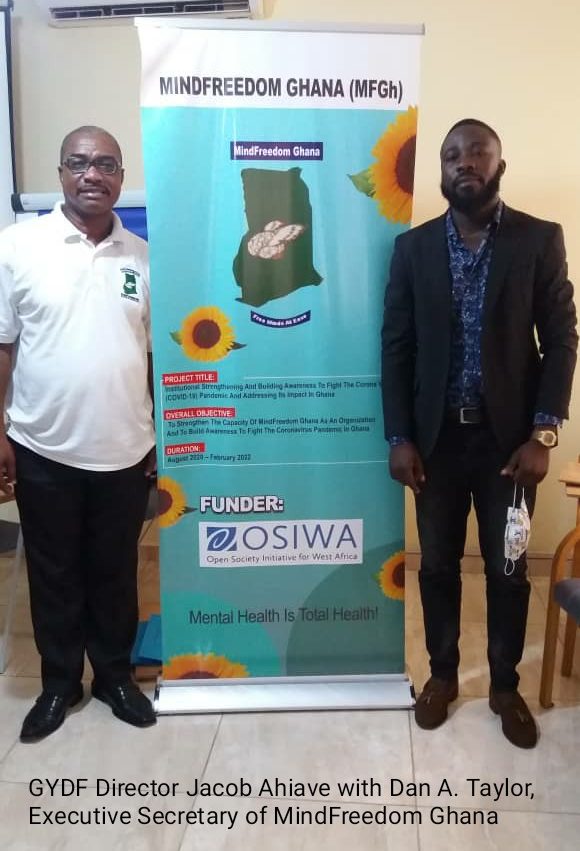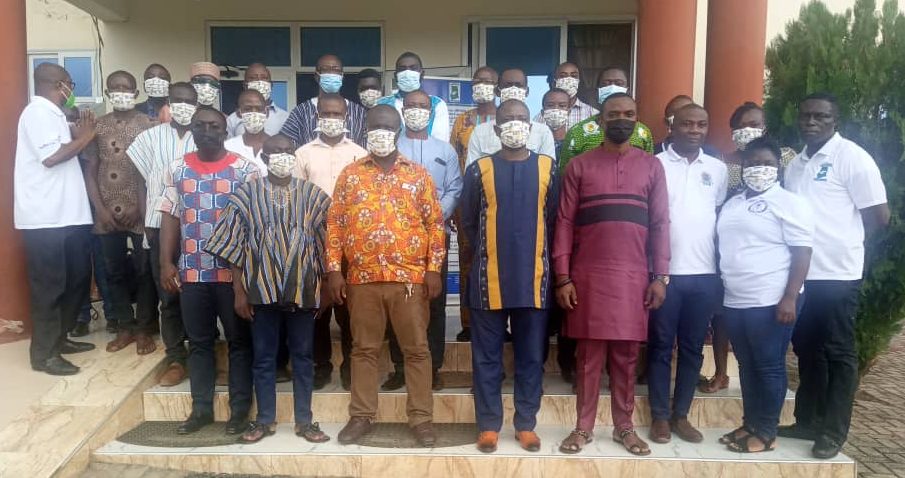MindFreedom (MFGh) Ghana is a non-government organisation established in 2004 with the vision of improving the mental health and social lives of persons with psychosocial disabilities in Ghana as well promoting their human rights and dignity. MFGh currently seeks to foster and strengthen links with similar minded organisations both across Ghana and internationally to harmonise operations, learn from each other and explore diverse forms of cooperation, all with the goal of upscaling the assistance available to people with disabilities. One of the key objective of MFGh is to support and assist people with mental disorders in their treatment regiment and advocate for conditions – both in the communities and at psychiatric facilities – that would not infringe on their human rights and dignity.
MFGh invited organisations and experts interested in mental health matters to a workshop held in Jasikan (Oti Region) on 26 October, 2021. GYDF director Jacob Ahiave participated in the training and also used the opportunity to network with representatives from MFGh and the other workshop participants. In attendance were the Mental Health Nurses, the Oti Region Health Director, several District Directors as well as representatives from various District Assemblies from across the region.
The central topic discussed at the workshop was the impact of Covid-19 on mental health. There is significant evidence that the circumstances surrounding the Covid-19 pandemic have caused high levels of stress and tension, i.e., the inability of the body to cope with novel stressors. Results observed include negative impacts on both physical and mental well-being.
The workshop then moved to a discussion on how such stress can be managed. Proven methods include exercise, meditation, sufficient sleep or rest, a healthy balanced diet, and avoidance of alcohol.
In relation to the Covid-19 pandemic, there have also been signs of increasing numbers of people being affected by depression, a major mental health problem. It can be caused by states of emotional agitation, a clinical condition or another medical conditions. Typical symptoms of depression are: poor concentration, loss or increase in appetite, guilty feelings, loss of energy and loss of interest. While mild depression can often be managed by appropriate behaviour such as frequent exercise, a serious depression usually means that medical assistance should be sought.
The discussion finally turned to substance use disorder. Three major stages of substance use or addiction can be distinguished: loss of control, compulsion to use, and craving continued use. Symptoms include hallucinating, delusion, abnormal speech, and abnormal behaviour. Tackling substance use disorders requires a mix of effective education, effective screening – which means a public health approach is needed at all levels.

